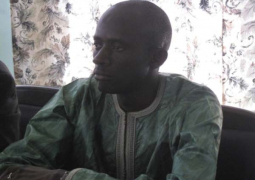In
the aftermath of the riot in Kanilai on Friday which led to the death of one
Haruna Jatta and several others sustaining injuries, views both on and off line
were the polar opposite of each other, and most of them blaming one side or the
other.
According
to the pro-Kaniai rioters, it is the constitutional-guaranteed right of the
Kanilai residents to take to the streets to protest to vent out their
reservation with the presence of the ECOMIG forces and Gambian soldiers in
their area.
Others
said the soldiers, notably the ECOMIG, were wrong in their reaction for they
were highhanded on the rioters.
While
this is not the time to apportion blames or to say who is right and wrong, it
is crucial to understand that Kanilai people, like every other person, have a
right to protest in support of Yahya Jammeh or against the occupation of the
ECOMIG forces in their territory. The
right to peaceful demonstration is one of the fundamental rights enshrine in
the constitution and which the new government vowed to protect.
The
law does not, however, only give the permission to demonstrate but it also
states the acceptable parameters within which it could be done.
If
it is true that some members of the protesters were armed with traditional
weapons then the interior minister was right when he called it a violent
protest, and an act of provocation against members of the security forces.
The
demonstration that is permitted by the constitution is a peaceable one, one
where the demonstrators are not armed.
The Kanilai incident apparently failed that test.
Provocation,
the legal minds say, is one of the defences which may exculpate or mitigate one
from criminal liability. That is to say
even the law recognises that human beings are prone to losing their control
when provoked or under extreme rage and in such situation, violent reaction
should be expected, and justice demands that account be taken of this natural
tendency of human beings in making judgments.
However,
in as much as the law recognises human weakness, it does not condone human
ferocity, as was the response of the Kanilai forces. It was out fashion for the
ECOMIG or Gambian soldiers to use live bullet on civilian protesters. They may have been armed but the types of
arms they were armed with did not justify the use of live bullet on them.
The
first resort to quell violent protest of civilians by the military forces
should not be live ammunition.
The
government should find a lasting solution through dialogue with the Kanilai
people because the budding tension there if not control could add further
pressure to the already volatile security situation of the country.
The
authorities should not play down this protest; measures should be taken to
avoid its repetition anywhere, not only in Kanilai.
The
security of the state is entirely the domain of the government and it must
exercise this prerogative to maintain sanity and security, and law and order in
the country.
“You
either abide by the law or you will be consumed by the law,”
Mai
Ahmad Fatty
Read Other Articles In Article (Archive)
Super Nawetan Fixtures Released
Nov 18, 2014, 10:58 AM
Acting Air Traffic Service Manager arraigned for giving false information
Aug 5, 2015, 11:08 AM



